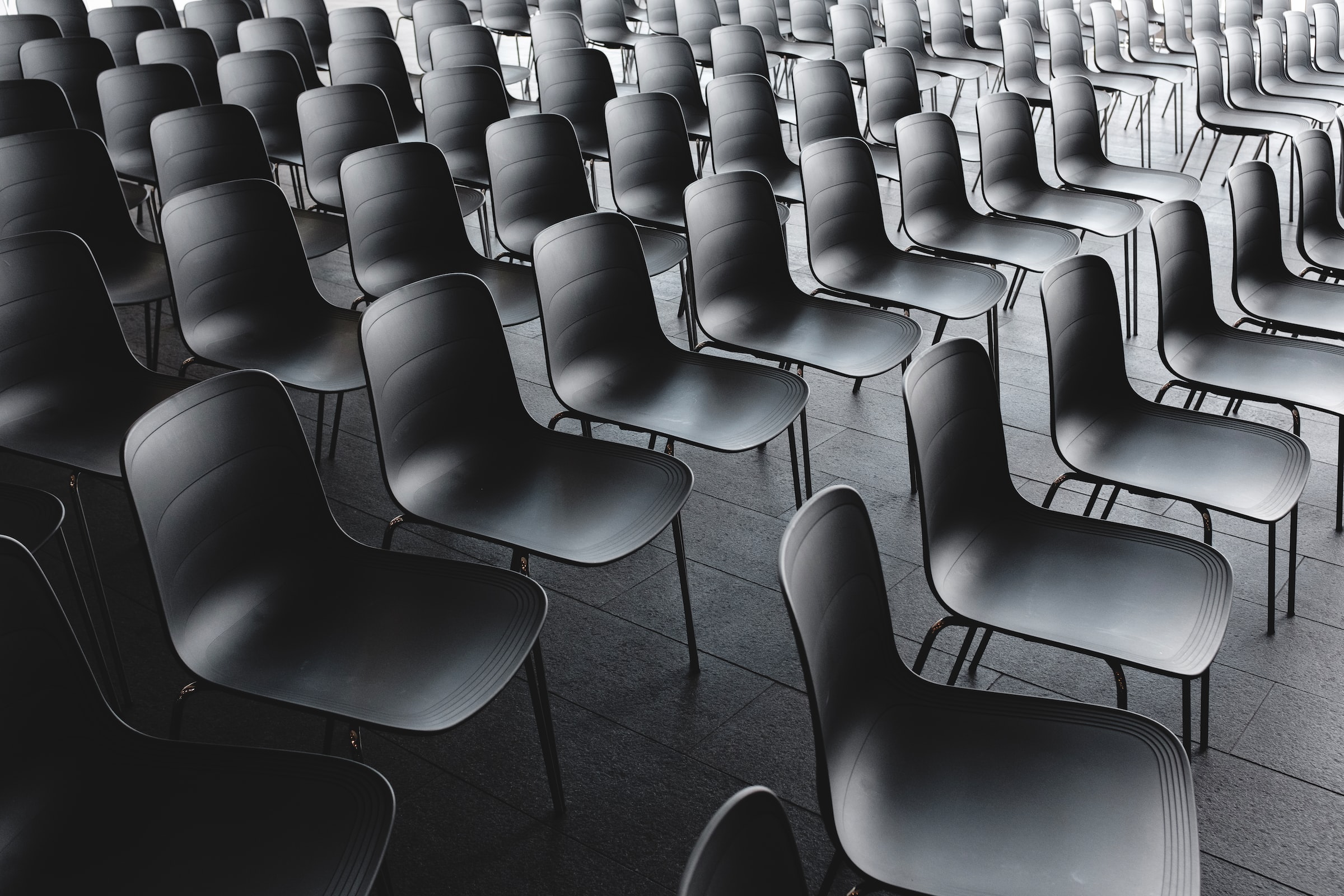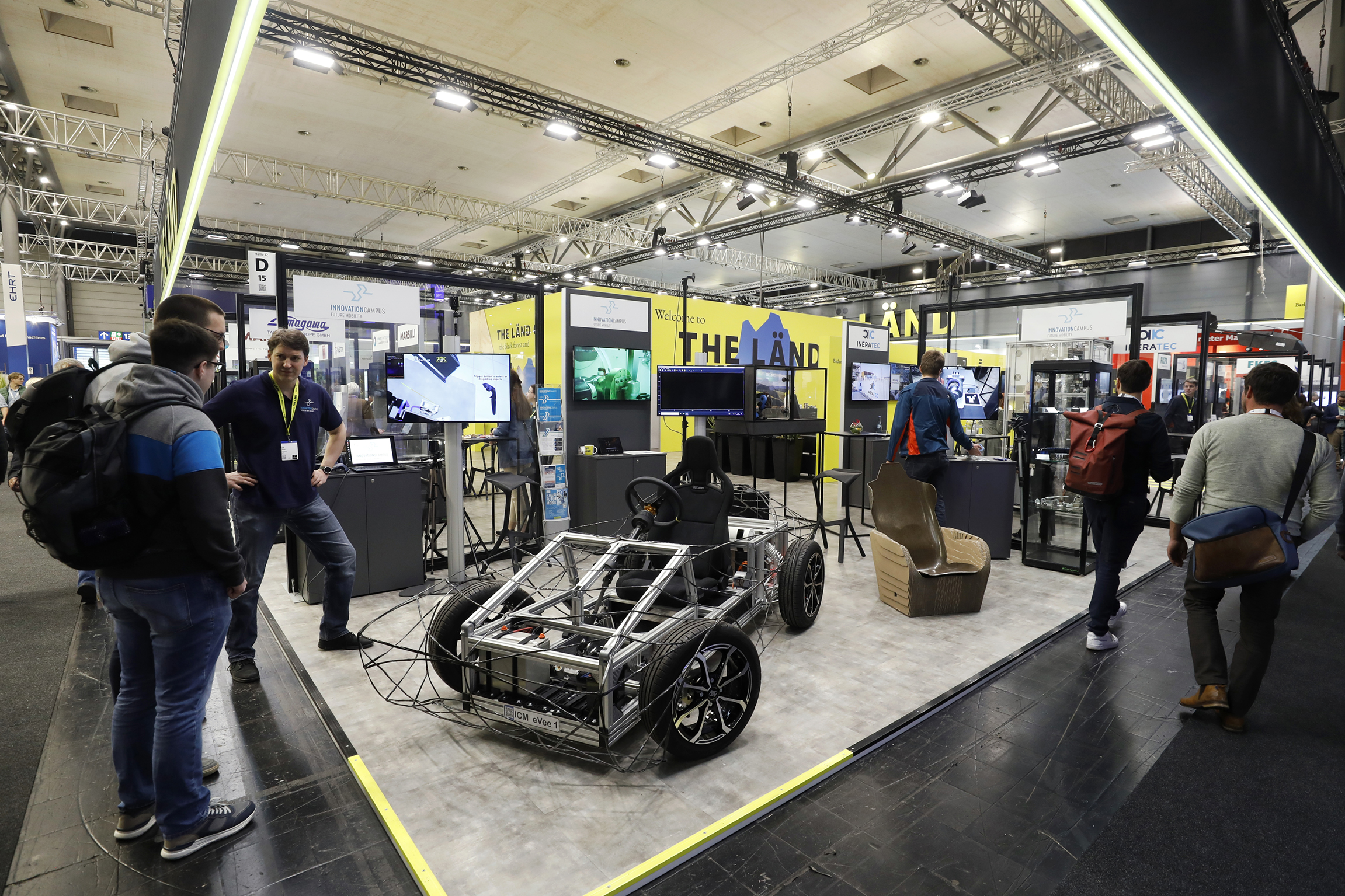
Hannover Messe
until - HANNOVER MESSE, Hannover
The partners of the ICM will once again present themselves at the world's leading trade fair for industrial technology in 2024.
HANNOVER MESSE is the world’s leading trade fair for industrial technology. Its lead theme "Industrial Transformation" brings together exhibiting companies from mechanical and electrical engineering, the digital industry and the energy sector to present solutions for the future of manufacturing and energy supply. Leading topics include Industrie 4.0/Manufacturing-X, energy for industry, digitalization/artificial intelligence and machine learning, carbon-neutral production, and hydrogen and fuel cells. Conferences and forums complement the program.

ICM at Hannover Messe: Sustainable, Mobile, Adaptive
At Hannover Messe 2024, the ICM and its partners are once again emphasising their role as a driving force for top-level research into the mobility and production technologies of the future
Autonomous and sustainable mobility technologies enabled by efficient and flexible production systems - that is the vision of the InnovationCampus Future Mobility (ICM). The partner institutes of the initiative of the University of Stuttgart and the Karlsruhe Institute of Technology (KIT) are researching emission-free drive concepts, engines without rare earths and self-learning automation systems. Results from these projects are the highlights of the ICM exhibition at the Baden-Württemberg shared booth in Hall 12, booth D15.
The ICM junior research group "Sensor-based development of H2 fuel cells" presents an entire hydrogen world. Using exhibits from various projects, the researchers illustrate large parts of the process chain that takes place in a fuel cell system. Visitors will be able to understand the interplay between the various components and the importance for design and construction. At the center of the hydrogen world is a newly developed fuel cell concept, which is being exhibited in this form for the first time at the Hannover Messe. The design and shape are such that the researchers can integrate sensors into the main component, the bipolar plate.
In the RoboCable project, four partner institutes of the ICM are researching novel AI methods for robot-assisted manipulation of flexible components such as cables or cable harnesses. They demonstrate their preliminary results at the Hannover Messe with a robot equipped with optical sensors to detect the position of connectors and automatically fit them with cables. The groundbreaking aspect here is the AI approach to spatially detect the connector positions, which enables further automation steps.
Under the ICM umbrella, leading institutes from Baden-Württemberg are researching innovative propulsion systems such as the inductively electrically excited synchronous machine (IEESM). The efficient electric motor does not require permanent magnets made of rare earth metals. Instead, a coil generates the rotor magnetic field, which is supplied with power contactlessly through an inductive transformer. The ICM project GIKEES (Glass Fiber-Integrated Contactless Energy Transmission for Electrically Excited Synchronous Machines) addresses this point. Scientists from the Institute for Electrical Energy Conversion (iew) and the Institute of Aircraft Design (IFB) at the University of Stuttgart have developed a hybrid rotor hollow shaft made of steel and glass fiber-reinforced plastic (GFRP). Since the lightweight material has no electromagnetic interaction, the inductive energy transmitter can be integrated much more compactly into the rotor hollow shaft. The cooling concept of the inductive transmitter in the rotor hollow shaft was developed by the Institute of Product Engineering (IPEK) at KIT.
The ICM's crowd-puller, the "DeVee" test vehicle, already aroused great interest at the last Hannover Messe. The components of the lightweight single-seater are the results of various ICM research projects: Reluctance machines without rare earth metals, a compact fuel cell system, additively manufactured wheel suspensions and an optimized electrical/electronic architecture.
The ICM's partner institutes have succeeded in creating an outstanding example of additive-subtractive manufacturing with their design of a transverse flux machine. Not only because of the ultra-modern manufacturing process, but also because of the innovative design. Slots specifically incorporated into the stator reduce the disruptive eddy currents and thus increase the power density.
As part of the ICM Innovation Challenge, a team from the Karlsruhe Institute of Technology and the start-up MoThor Batteries has developed a battery pack with detachable mechanical cell contacts. Defective individual cells can even be replaced by the mechanic in the bike store next door. Originally designed for an e-bike battery, the project is now being further developed for larger batteries under the name BattereVee.
Two ICM projects are presenting their results in the exhibition area at the University of Stuttgart. The Time-Gated Single Pixel Camera (TGSPCam) is a novel sensor concept for object recognition in suboptimal weather conditions such as snow or fog. As part of the HyLine project, the university's Materials Testing Institute tested its innovative friction welding gun on an industrial robot.
Your Contact
Key data
| Date | 04-22 until 04-26-2024 |
|---|---|
| Place |
HANNOVER MESSE
Messegelände 30521 Hannover |
| Additional Info | Organizer: The stand is a joint project of Baden-Württemberg International, the state agency e-mobil BW and the Stuttgart Region Economic Development Corporation (WRS). |